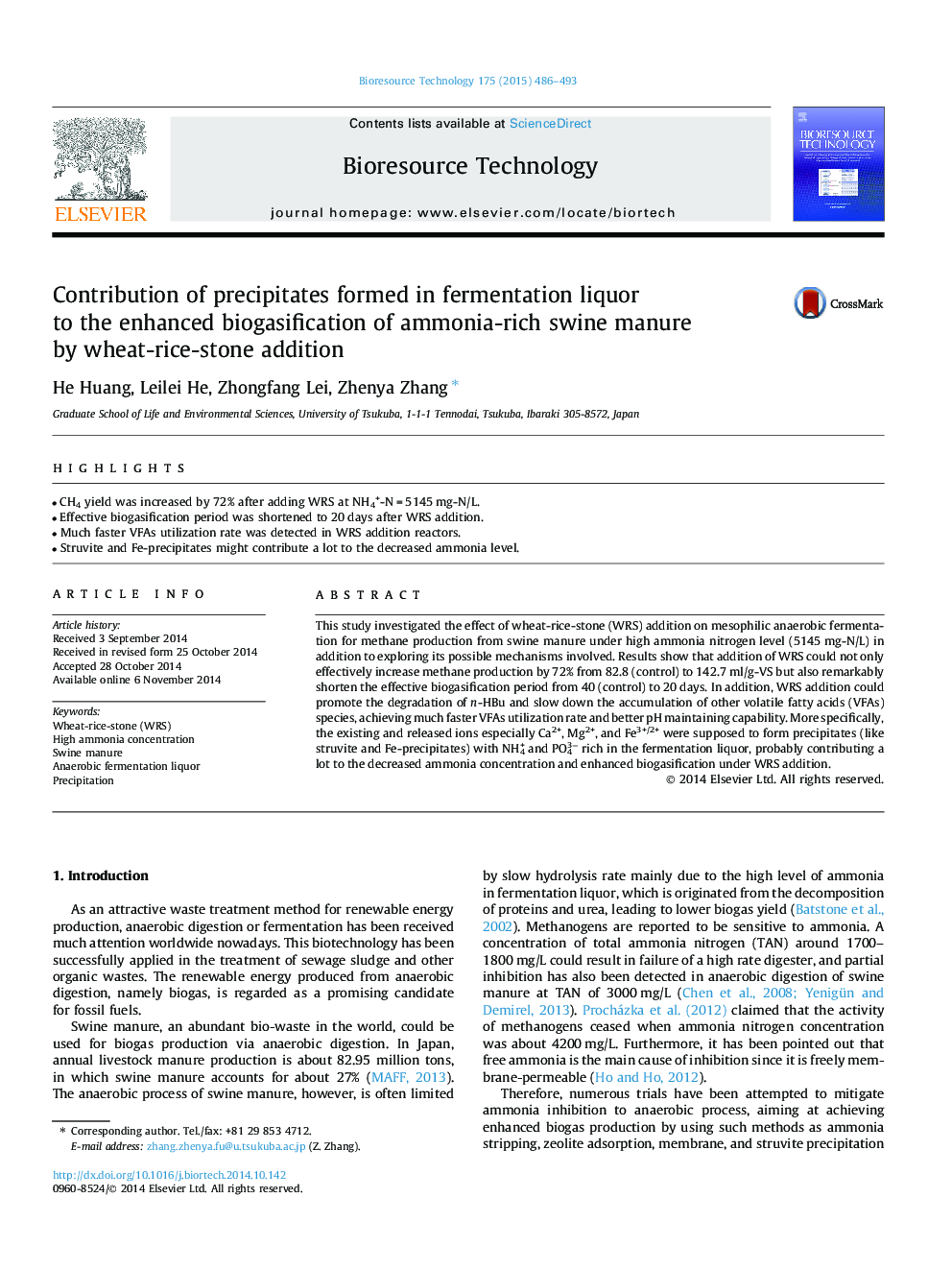| Article ID | Journal | Published Year | Pages | File Type |
|---|---|---|---|---|
| 680280 | Bioresource Technology | 2015 | 8 Pages |
•CH4 yield was increased by 72% after adding WRS at NH4+-N = 5145 mg-N/L.•Effective biogasification period was shortened to 20 days after WRS addition.•Much faster VFAs utilization rate was detected in WRS addition reactors.•Struvite and Fe-precipitates might contribute a lot to the decreased ammonia level.
This study investigated the effect of wheat-rice-stone (WRS) addition on mesophilic anaerobic fermentation for methane production from swine manure under high ammonia nitrogen level (5145 mg-N/L) in addition to exploring its possible mechanisms involved. Results show that addition of WRS could not only effectively increase methane production by 72% from 82.8 (control) to 142.7 ml/g-VS but also remarkably shorten the effective biogasification period from 40 (control) to 20 days. In addition, WRS addition could promote the degradation of n-HBu and slow down the accumulation of other volatile fatty acids (VFAs) species, achieving much faster VFAs utilization rate and better pH maintaining capability. More specifically, the existing and released ions especially Ca2+, Mg2+, and Fe3+/2+ were supposed to form precipitates (like struvite and Fe-precipitates) with NH4+ and PO43− rich in the fermentation liquor, probably contributing a lot to the decreased ammonia concentration and enhanced biogasification under WRS addition.
